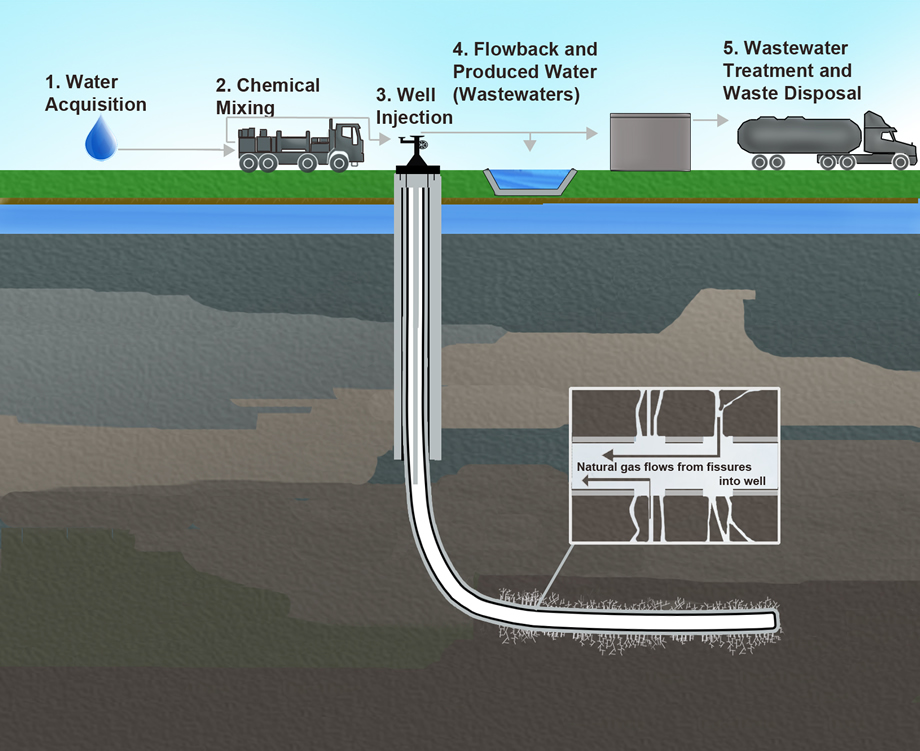
Diagram of a shale gas extraction operation using hydraulic fracturing (fracking). (image: U.S. Environmental Protection Agency).
Say the word “fracking” to anyone who has heard it before, and you are likely to get a big reaction. To most, fracking is either the key to unlocking energy independence and an economic blessing or a pathway to public health disasters and irreversible environmental destruction. While both opinions contain a kernel of truth, neither is completely accurate. At EO, we view fracking and the shale development boom it is driving as realities of a new energy landscape that must be studied, monitored, and regulated in new and better ways. Most importantly, we believe fracking is in dire need of clear, effective, and independently-developed standards for social and environmental performance. That’s why we launched the public comment period on our draft EO100™ for Shale Oil & Gas today.
Shale oil and gas development enabled by fracking has had profound effects on communities and the environment around the U.S. and around the world. Some have been positive, like private landowners getting rich, job creation, and lower carbon dioxide emissions. But other effects have been unquestionably negative: fracking and shale development have been linked to water contamination,higher crime rates, and even earthquakes.
As we have been doing with conventional oil and gas development since our founding in 2009, EO will be working in the shale development space to minimize the negative impacts of individual development projects and maximize the positive ones. More specifically, we will seek to engage people living near development sites in promoting more responsible practices and incentivize the use of the most advanced techniques in the industry to minimize impacts on human health, land, air, water, and wildlife. Our work on shale oil and gas standards and certification will benefit oil and gas companies too: higher performance standards and more participatory and transparent engagement with local communities can reduce the risk of accidents, regulatory actions, and community opposition—all of which can mean costly delays in production.
We see huge potential for positive outcomes of applying EO standards to shale oil and gas operations, especially in the U.S., the world’s fracking epicenter. The impacts of fracking in the U.S. are already massive: some 82,000 new wells have been fracked since 2005. Although low oil and gas prices have slowed the pace of shale development in recent months, activities are continuing in many different parts of the country and shale resources are projected to be the leading sources of U.S. oil and gas for the next 25 years. As development activities grow and expand into new geographies, they will move closer to homes and schools and into shared natural areas like state parks and forests. As that expansion continues, clear and consistent standards for responsible operations will become an increasingly urgent need, and the EO100 Shale Oil and Gas performance standards will be an important tool for meeting that need.
The standards we published today are only a first draft and should be read in conjunction with the EO100 Standard. The shale standards are intended to clarify how specific Performance Targets in the EO100 Standard should be applied to shale oil and gas operations. As we collect comments and feedback from scientists, academics, regulators, and oil and gas companies, we’ll be holding community workshops in shale development areas around the country. These workshops are crucial to the development of transparent and effective standards that work for communities affected by shale development and fracking—regardless of their feelings about fracking in general. We will be scheduling some of these workshops on our own, but hope to hear from individuals and groups who would like to learn more about how the EO100 Standard and EO site certification work and how they could improve shale development practices in their communities—interested parties should email us at contact[at]equitableorigin.com to request more information.
For years, the debate over shale development has been dominated by “pro frackers” and “anti frackers,” with too little discussion and too few resources focused on making the fracking that does happen safer, cleaner, and more transparent for the people experiencing its direct effects. We are determined to change that and to bring all stakeholders in shale development together to transparently build the highest standards yet for safer and more responsible fracking.

